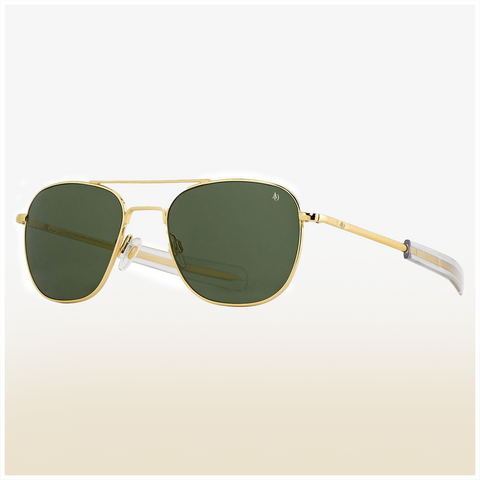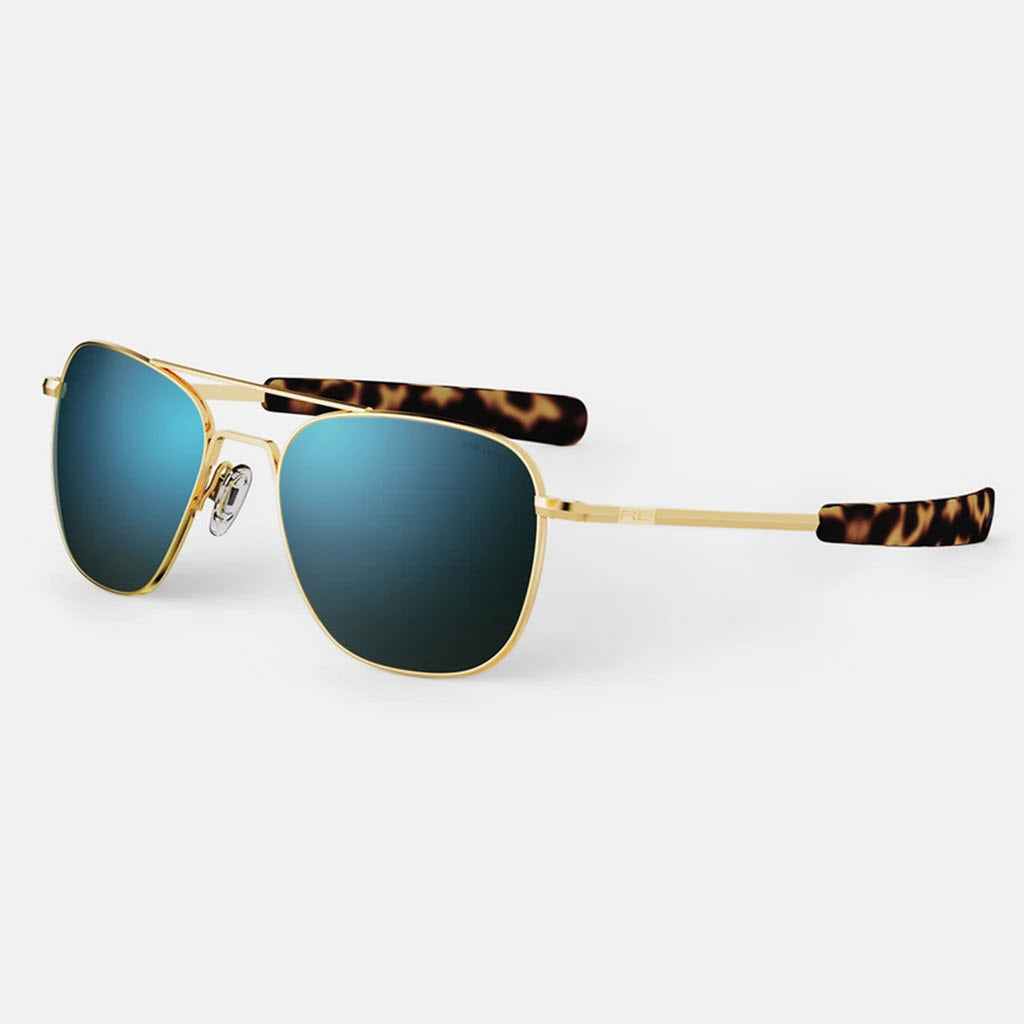How To Clean Randolph Sunglasses In 5 Easy Steps

Cleaning your Randolph sunglasses shouldn’t take long at all, and only requires a sink, lint-free towels or cloths, lotion-free dishwashing liquid, and hand soap.
- Wash and dry your hands
Making sure your hands are clean is the first step to having pristine glasses—you don’t want to transfer oil or dirt from your skin to your frames during the cleaning process.
Wash your hands with soap (lotion and other additive ingredients can contribute to smudging) and dry them off with a towel or microfiber cloth that won’t leave specks of lint.
- Rinse your glasses under the tap with lukewarm water
Hold your glasses frames under the faucet and rinse them off well. Lenses too!
Warm water is best for dislodging dust and gunk, but don’t let it get too hot or you risk damaging any specialized coatings on your lenses.
- Place a drop of lotion-free dishwashing liquid or lens cleaning solution on each lens, then rub the soap around the lenses and frame
You only need a drop per lens to get your glasses good and clean. Rub the dishwashing liquid or lens cleaning solution over both sides of the lenses with your fingers, then over the entire frame. Pay special attention to the sunglass parts most often in contact with your skin, such as the nose pads and temples.
If you don’t have any dishwashing liquid that will work, you can also use a sunglasses-cleaning solution for this step. Just make sure it’s approved for use with lens coatings, and don’t over-spray it.
- Rinse your sunglasses again
Hold your glasses under running water to get the soap off the frames.
- Dry your glasses with a clean microfiber cloth or lint-free towel
You want to use these kinds of cloth because they won’t leave little bits of lint or dust behind. (That would be a major bummer at the last step.)
Gently dry your glasses and hold them up to the light to look for any persistent smudges or lingering debris. If they pass inspection, go ahead and put them back on.
Walking through the steps above should get your glasses suitably clean, but we have some additional tips for ensuring spotless lenses and frames.
- If there’s debris trapped in the small nooks of your frame (such as where the frame meets the lenses or around the hinges), try using a cotton swab to clean out these areas before the first rinse.
- If your glasses have nose pads, it’s a good idea to spend some time wiping them off—because they’re in direct contact with your skin, they often accumulate more germs than other parts of the frame. A disposable moist towelette with rubbing alcohol can be used here if you want to go above and beyond, but only use it on the pads and not the rest of the frame.
- Wash your microfiber cloths often. These cloths are experts at trapping dust and will eventually spread it around if they aren’t kept clean themselves.
- Always rinse your glasses to get them wet before any vigorous wiping or rubbing. Cleaning glasses when they’re dry often results in scraping and smearing debris across the lenses and frame rather than removing it.
- Give your glasses a quick, light cleaning daily and a more thorough cleaning weekly. This schedule should keep them dirt and smudge-free.
Now that you know the best way to clean your eyeglasses, what about the don’ts? It’s important to avoid certain cleaning practices that can harm your eyewear, even if they appear to be popular.
- Don’t wipe your lenses with part of your shirt—or any part of your clothing, really. Clothing fabric isn’t engineered to clean sunglass lenses and can scratch them.
- Don’t use any cleaning products other than dishwashing liquid or glasses cleaning solution to clean your glasses. Products such as acetone, alcohol, and household glass cleaners can damage lens coatings.
- Don’t use your own saliva, either. That won’t clean your lenses, it’ll just add more germs!
- If hard water comes out of your tap, consider cleaning your eyeglasses with distilled water instead.
- Don’t use disposable paper towels, tissue paper, toilet paper, or napkins to wipe your lenses. These products might feel soft to you, but they can scratch lenses and often leave bits of themselves behind when rubbed too vigorously.
- Don’t use fabric softener or dryer sheets when you wash and dry your towels and microfiber cloths. The residue they leave on cloth can cause smearing on lenses.
- If you notice scratches on your lenses, do not try to rub or buff them out—you’ll probably only make them worse. Take your glasses to an optician if you fear that they’re losing clarity due to damage.
Until next time, keep your eyes safe and focused on what's ahead of you, Hersch!







Leave a comment
This site is protected by hCaptcha and the hCaptcha Privacy Policy and Terms of Service apply.